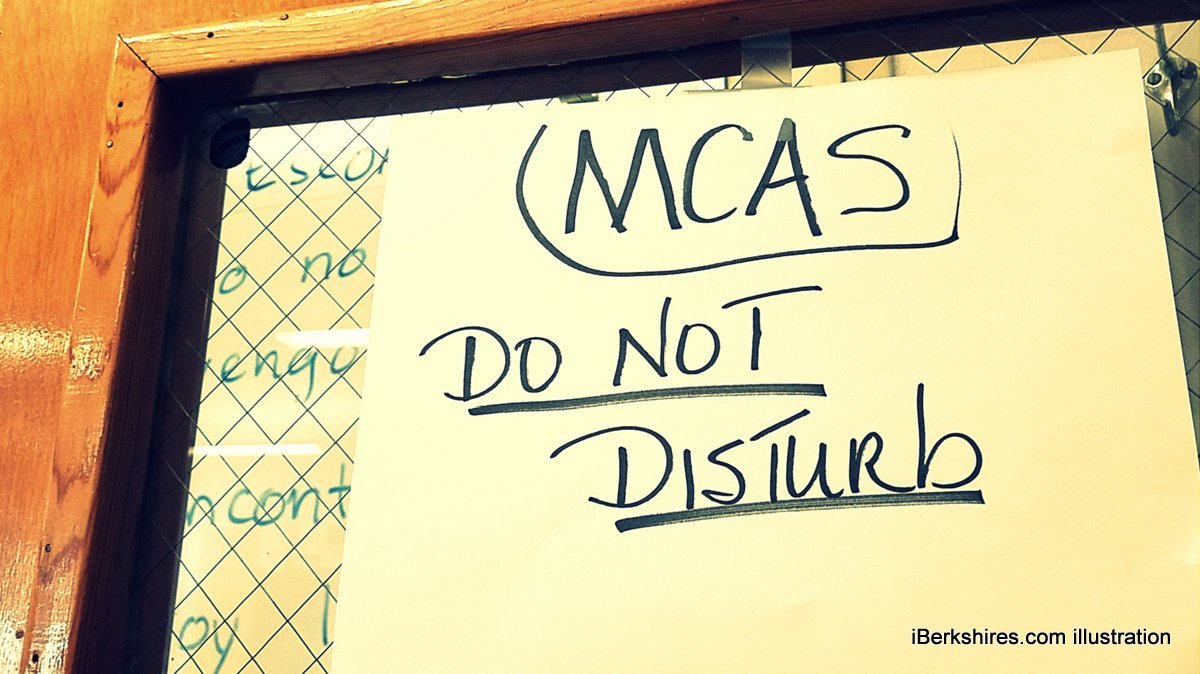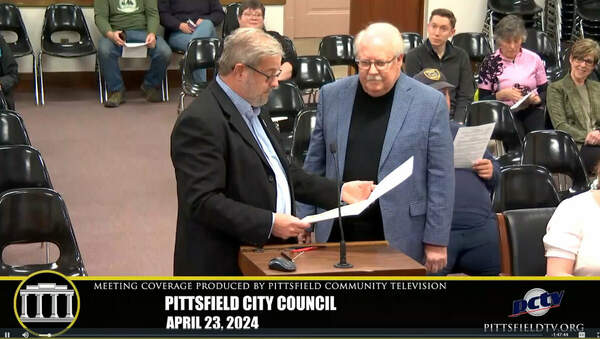
Pittsfield School Committee Takes Stance Against MCAS During COVID
PITTSFIELD, Mass. — The Pittsfield Public Schools is taking a stance against conducting MCAS testing during this historically difficult year.
On Wednesday, the School Committee unanimously voted to ask the state consider suspending Massachusetts Comprehensive Assessment System testing in the 2020-2021 school year.
"We just can't stop here," committee member Mark Brazeau said. "We need to really reach out to our state and federal lawmakers."
MCAS testing requirements were suspended last April for the remainder of the school year. Under this action, the Department of Elementary and Secondary Education modified or waived graduation requirements for students set to complete high school in the spring 2020.
Last month, DESE Commissioner Jeffrey Riley announced modifications to MCAS testing in a memorandum, announcing the shortened testing time for Grades 3-8, and accountability relief among other changes.
"The Department continues to believe the MCAS test is a crucial diagnostic tool to promote student success and educational equity and we remain committed to administering the assessment this spring while recognizing the need for adjustments and flexibility," Riley wrote.
State and local government officials originally believed the COVID-19 pandemic would be resolved in weeks, or months at most. Nearing the one-year anniversary of shutdowns, both school officials and students indicated Wednesday that now is not the appropriate time for high stakes testing because of the significant disruption to in-person instruction that has been experienced by the stchools and the "thwarted" effects of the pandemic in the operations of the district.
Chairwoman Katherine Yon also pointed out that students have been through enough this year.
The committee directed Yon to:
-
make formal requests of the commissioner and state Board of Elementary and Secondary Education to seek an MCAS waiver for the 2020-2021 school year.
-
make a formal request of support for such a waiver from U.S. Sens. Edward Markey and Elizabeth Warren, and U.S. Rep. Richard Neal.
-
make a formal request that the commissioner and the board seek expeditiously statutory approval from the Legislature for an exemption from the MCAS testing.
-
make a formal request of state Sen. Adam Hinds and state Rep. Tricia Farley-Bouvier for support and sponsorship of a statutory waiver of the MCAS testing requirement.
- make a formal request of Gov. Charlie Baker for his support of a waiver.
"Earlier this week, I thought that students would have the authority to file a waiver with the federal government, but also now it seems like the federal government wants all standardized testing to continue," Taconic High School junior William Garrity said. "So, this is going to be a harder issue now, but I still think it should get suspended. Even though my teachers say I can just pass this easy, 'it's going to be easy, it's piece of cake,' I just don't really want to waste my time missing all my classes to do the MCAS."
Mayor Linda Tyer agreed that high-stakes testing at this point in the recovery from the pandemic is not a productive way to get everyone back into social and emotional equilibrium but thinks there is value in understanding where students are at in their skill set.
"I don't think MCAS is the right method for this current circumstance, I also don't think there can be no measure of students," she said. "If we're going to take this position, which I'm fine to do, we have to be prepared, and I know we can't do that tonight, but we have to be prepared to say 'what is the alternative?'"
Interim Superintendent Joseph Curtis explained that the schools do have a local benchmarking plan and system that students took in January and will repeat in June. He explained that the benchmarking data will be used as a foundational piece in building the budget presentation taking place on March 10.
"We are keeping substantial local data," Curtis said. "And things such as reading fluency, standard obtainment, math frameworks in ELA, math, and science, and we are collecting that data for all of our grade levels."
Pittsfield High student Joseph Weinberg told the committee that from his perspective, benchmark testing is a better route to take than MCAS testing.
"I think benchmarks are actually just like more beneficial in general for two reasons. It's already part of the curriculum so it doesn't add any stress, and a huge part of something that, that can affect things like MCAS scores, which also applies to all standardized testing like SATs. It's just that being a bad test taker can shift your score in a major way, and that doesn't necessarily reflect your ability or your knowledge and what you've learned," he said.
"And I think a lot of people forget that sometimes and it's really important to think about that, compared to a benchmark which is not nearly as stressful because it's on a local level and I think it's just a psychological thing that's just how it worked out for most people. Secondly, it fits in with the syllabus of our classes, so the benchmarks can be arranged in a way that works with what we're actually learning, as opposed to something like an MCAS or an SAT which are standardized and so it doesn't always link up super well with specifically what we're learning."
The committee thanked Weinberg and Garrity for their input and agreed to send Weinberg's testimony — with his permission — to Commissioner Riley so that a student's perspective can be heard.
Tags: COVID-19, MCAS,
More Coronavirus Updates















